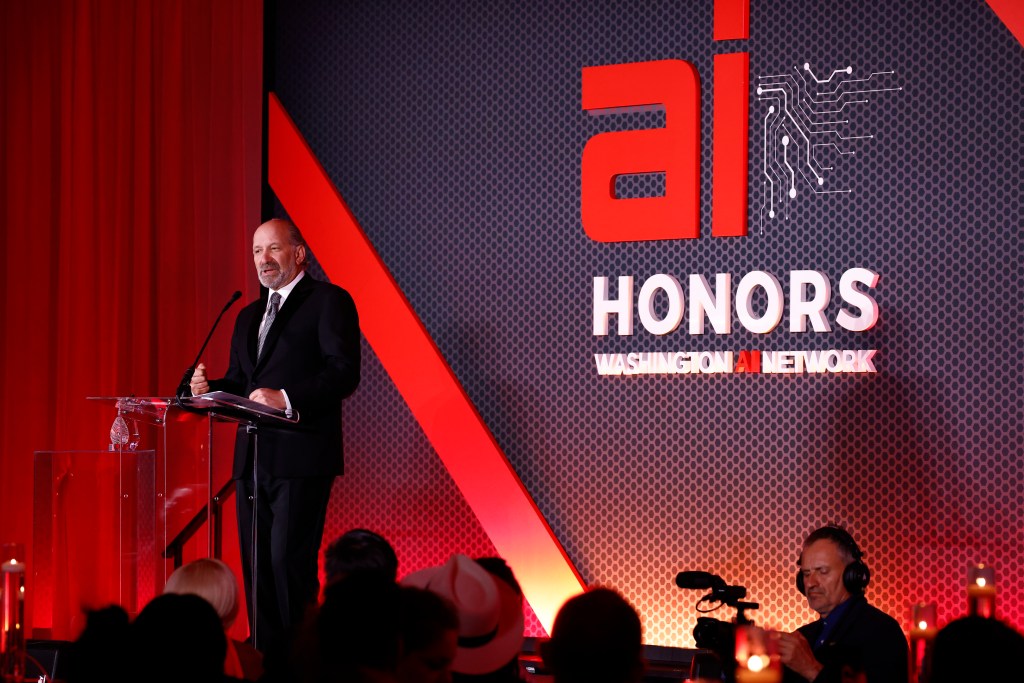Commerce Secretary Howard Lutnick told a D.C. crowd this week that the Biden-era AI Safety Institute would be rebranded as the Center for AI Standards and Innovation, as a “place where people voluntarily go to drive analysis and standards.”
“As we move from large language models to large quantitative models, and we add all these different things, you want a place to go,” Lutnick said. “We say, has someone checked out this model? Is this a safe model? Is this a model that we understand? How do I do this? And we’re not going to regulate it. We are going to enhance the voluntary models of what great American innovation is all about.”
Lutnick’s remarks came at the inaugural AI Honors this week, held by the Washington AI Network at the Waldorf Astoria.
The rebrand reflects a more hands-off approach that the Trump administration has taken to AI, after President Joe Biden often addressed AI by spotlighting the need for guardrails around the technology, and lined up major AI companies to agree to a set of voluntary commitments for “responsible innovation.” Biden signed an executive order in 2023 that directed the Department of Commerce to develop standards for authentication and watermarking, among other things, in the creation of a Safety Institute.
Days after taking office, Trump rescinded Biden’s executive order, placing an emphasis on deregulation.
In his speech, Lutnick said that AI safety “is sort of an opinion based model. And the Commerce Department and NIST, the National Institute of Standards and Technology, we do standards and we do most successfully cyber, the gold standard of cyber.”
The Biden administration acknowledged that in many cases it would be left to Congress to pass laws to regulate AI technology. In entertainment, one of the more significant proposals is the No Fakes Act, which would give individuals a right to control their digital likeness, meaning that content creators would need permission to recreate celebrities and anyone else using AI.
The Center for AI Standards and Innovation also will seek voluntary agreements “with private sector AI developers and evaluators, and lead unclassified evaluations of AI capabilities that may pose risks to national security,” per a Commerce Department announcement.
The ceremony on Tuesday honored Sen. Todd Young (R-IN); Rep. Jay Olbernolte (R-CA) and Rep. Ted Lieu (D-CA); Vice Admiral Frank Whitworth, director of the National Geospatial-Intelligence Agency; SandboxAQ CEO Jack Hidary; Patricia Falcone, deputy director for science and technology at the Lawrence Livermore National Laboratory; Ylli Bajraktari, president & CEO of SCSP and founder of AI + EXPO; and Booz Allen’s Chief Technologist Joanna Guy, Space Llama Engineer Zane Price; and VP of AI Don Polaski. Alos honored was Father Paolo Benanti, Vatican adviser on AI ethics. The Washington AI Network was founded by Tammy Haddad.
CNN anchor Sara Sidner emceed the event.
In his speech, Lutnick also emphasized the need for the U.S. to remain the leader in AI, as he outlined parts of the administration’s strategy to boost advanced manufacturing.
“The fact is that our adversaries are substantially behind us and we expect to keep them substantially behind us, but we want to bring our allies onto our side,” he said.
Among other things, he talked of doubling the U.S. power capacity to meet the need for giant data centers.
“The power necessary to drive these data centers is awesome. It’s awesome the amount of power they draw,” he said. “And it can’t be that the United States of America is balancing its citizens operating their refrigerator or a data center. That is just not a practical solution. So the practical solution would be to allow data center operators to build their own power generation sites adjacent to their data center.”
